Intro
Discover medications to slow heart rate, including beta blockers and calcium channel blockers, to manage arrhythmias, tachycardia, and palpitations, and learn about their uses, benefits, and potential side effects.
The heart is a vital organ that plays a crucial role in maintaining the overall health and well-being of an individual. It pumps blood throughout the body, supplying oxygen and nutrients to various organs and tissues. However, in some cases, the heart may beat too quickly, leading to a condition known as tachycardia. This can be caused by a variety of factors, including stress, anxiety, certain medical conditions, and lifestyle choices. Fortunately, there are several medications available that can help slow down the heart rate and alleviate symptoms associated with tachycardia.
In some cases, a rapid heart rate can be a symptom of an underlying medical condition, such as hyperthyroidism, anemia, or heart disease. In these situations, treating the underlying condition is essential to managing the heart rate. However, in other cases, the rapid heart rate may be caused by lifestyle factors, such as excessive caffeine consumption, smoking, or lack of exercise. Making healthy lifestyle changes, such as reducing caffeine intake, quitting smoking, and engaging in regular physical activity, can help slow down the heart rate and improve overall health.
When lifestyle changes are not enough to manage a rapid heart rate, medication may be necessary. There are several types of medications that can help slow down the heart rate, including beta blockers, calcium channel blockers, and digoxin. These medications work by reducing the heart's workload, slowing down the electrical impulses that control the heartbeat, and increasing the efficiency of the heart's pumping action. By slowing down the heart rate, these medications can help alleviate symptoms such as palpitations, shortness of breath, and chest pain, and improve overall quality of life.
Types of Medications to Slow Heart Rate
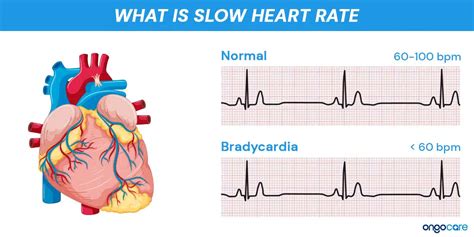
There are several types of medications that can help slow down the heart rate, including:
- Beta blockers: These medications work by blocking the effects of the hormone epinephrine, also known as adrenaline, which can cause the heart to beat faster. Beta blockers are commonly used to treat conditions such as high blood pressure, angina, and certain heart rhythm disorders.
- Calcium channel blockers: These medications work by blocking the flow of calcium into the heart muscle cells, which can help slow down the heart rate. Calcium channel blockers are commonly used to treat conditions such as high blood pressure, angina, and certain heart rhythm disorders.
- Digoxin: This medication works by increasing the strength of the heart's contractions and slowing down the heart rate. Digoxin is commonly used to treat conditions such as atrial fibrillation and heart failure.
Beta Blockers
Beta blockers are a type of medication that can help slow down the heart rate by blocking the effects of epinephrine. They are commonly used to treat conditions such as high blood pressure, angina, and certain heart rhythm disorders. Beta blockers work by reducing the heart's workload, slowing down the electrical impulses that control the heartbeat, and increasing the efficiency of the heart's pumping action. Some common beta blockers include: * Metoprolol * Atenolol * Propranolol * NadololHow Medications Work to Slow Heart Rate
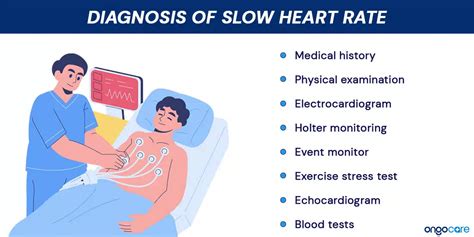
Medications that slow down the heart rate work by targeting the electrical impulses that control the heartbeat. The heart has a natural pacemaker, known as the sinoatrial node, which generates electrical impulses that control the heartbeat. These impulses travel through the heart, causing the muscle cells to contract and pump blood. Medications that slow down the heart rate work by reducing the frequency of these electrical impulses, slowing down the heart's pumping action, and increasing the efficiency of the heart's contractions.
Calcium Channel Blockers
Calcium channel blockers are a type of medication that can help slow down the heart rate by blocking the flow of calcium into the heart muscle cells. They are commonly used to treat conditions such as high blood pressure, angina, and certain heart rhythm disorders. Calcium channel blockers work by reducing the heart's workload, slowing down the electrical impulses that control the heartbeat, and increasing the efficiency of the heart's pumping action. Some common calcium channel blockers include: * Verapamil * Diltiazem * Nifedipine * AmlodipineBenefits of Medications to Slow Heart Rate
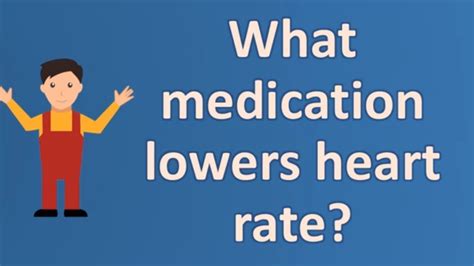
Medications that slow down the heart rate can have several benefits, including:
- Reduced symptoms: Medications can help alleviate symptoms such as palpitations, shortness of breath, and chest pain, which can improve overall quality of life.
- Improved exercise tolerance: By slowing down the heart rate, medications can improve exercise tolerance and reduce fatigue.
- Reduced risk of complications: Medications can help reduce the risk of complications, such as heart failure, stroke, and cardiac arrest, which can be associated with a rapid heart rate.
Digoxin
Digoxin is a type of medication that can help slow down the heart rate by increasing the strength of the heart's contractions. It is commonly used to treat conditions such as atrial fibrillation and heart failure. Digoxin works by increasing the efficiency of the heart's pumping action, reducing the heart's workload, and slowing down the electrical impulses that control the heartbeat.Potential Side Effects of Medications to Slow Heart Rate
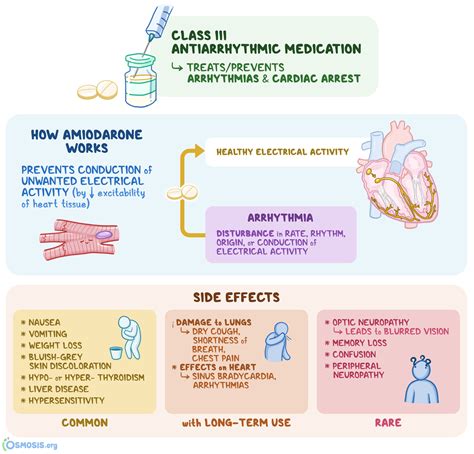
While medications that slow down the heart rate can be effective in managing symptoms and improving quality of life, they can also have potential side effects. Some common side effects of medications that slow down the heart rate include:
- Dizziness and lightheadedness
- Fatigue and weakness
- Headache and nausea
- Constipation and diarrhea
- Shortness of breath and wheezing
Interactions with Other Medications
Medications that slow down the heart rate can interact with other medications, including: * Blood thinners: Medications that slow down the heart rate can increase the risk of bleeding when taken with blood thinners. * Diabetes medications: Medications that slow down the heart rate can affect blood sugar levels and increase the risk of hypoglycemia when taken with diabetes medications. * Thyroid medications: Medications that slow down the heart rate can affect thyroid function and increase the risk of hypothyroidism when taken with thyroid medications.Lifestyle Changes to Support Medications to Slow Heart Rate
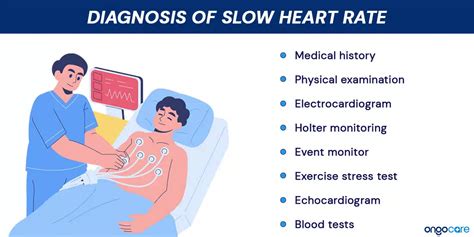
In addition to taking medications, making lifestyle changes can help support the management of a rapid heart rate. Some lifestyle changes that can help include:
- Reducing stress and anxiety: Stress and anxiety can exacerbate a rapid heart rate. Engaging in stress-reducing activities, such as meditation, yoga, and deep breathing exercises, can help manage stress and anxiety.
- Getting regular exercise: Regular exercise can help improve heart health and reduce the risk of complications associated with a rapid heart rate.
- Eating a healthy diet: Eating a healthy diet that is rich in fruits, vegetables, and whole grains can help support heart health and reduce the risk of complications associated with a rapid heart rate.
- Getting enough sleep: Getting enough sleep is essential for overall health and can help reduce the risk of complications associated with a rapid heart rate.
Monitoring and Follow-Up
It is essential to monitor and follow up with a healthcare provider regularly when taking medications to slow down the heart rate. This can help ensure that the medication is working effectively and that any potential side effects are managed. A healthcare provider can also adjust the medication dosage or switch to a different medication if necessary.Conclusion and Next Steps

In conclusion, medications that slow down the heart rate can be an effective way to manage symptoms and improve quality of life. However, it is essential to work with a healthcare provider to determine the best course of treatment and to monitor and manage any potential side effects. By making lifestyle changes and taking medications as directed, individuals can help manage a rapid heart rate and reduce the risk of complications.
We invite you to share your thoughts and experiences with medications that slow down the heart rate. Have you or a loved one taken medications to manage a rapid heart rate? What were your experiences, and what tips do you have for managing symptoms and improving quality of life? Please comment below and share this article with others who may be interested in learning more about medications that slow down the heart rate.
What are the most common medications used to slow down the heart rate?
+The most common medications used to slow down the heart rate include beta blockers, calcium channel blockers, and digoxin.
How do medications that slow down the heart rate work?
+Medications that slow down the heart rate work by reducing the frequency of electrical impulses that control the heartbeat, slowing down the heart's pumping action, and increasing the efficiency of the heart's contractions.
What are the potential side effects of medications that slow down the heart rate?
+The potential side effects of medications that slow down the heart rate include dizziness and lightheadedness, fatigue and weakness, headache and nausea, constipation and diarrhea, and shortness of breath and wheezing.
Can lifestyle changes help support medications that slow down the heart rate?
+Yes, lifestyle changes such as reducing stress and anxiety, getting regular exercise, eating a healthy diet, and getting enough sleep can help support medications that slow down the heart rate and improve overall health.
How often should I follow up with my healthcare provider when taking medications to slow down the heart rate?
+
